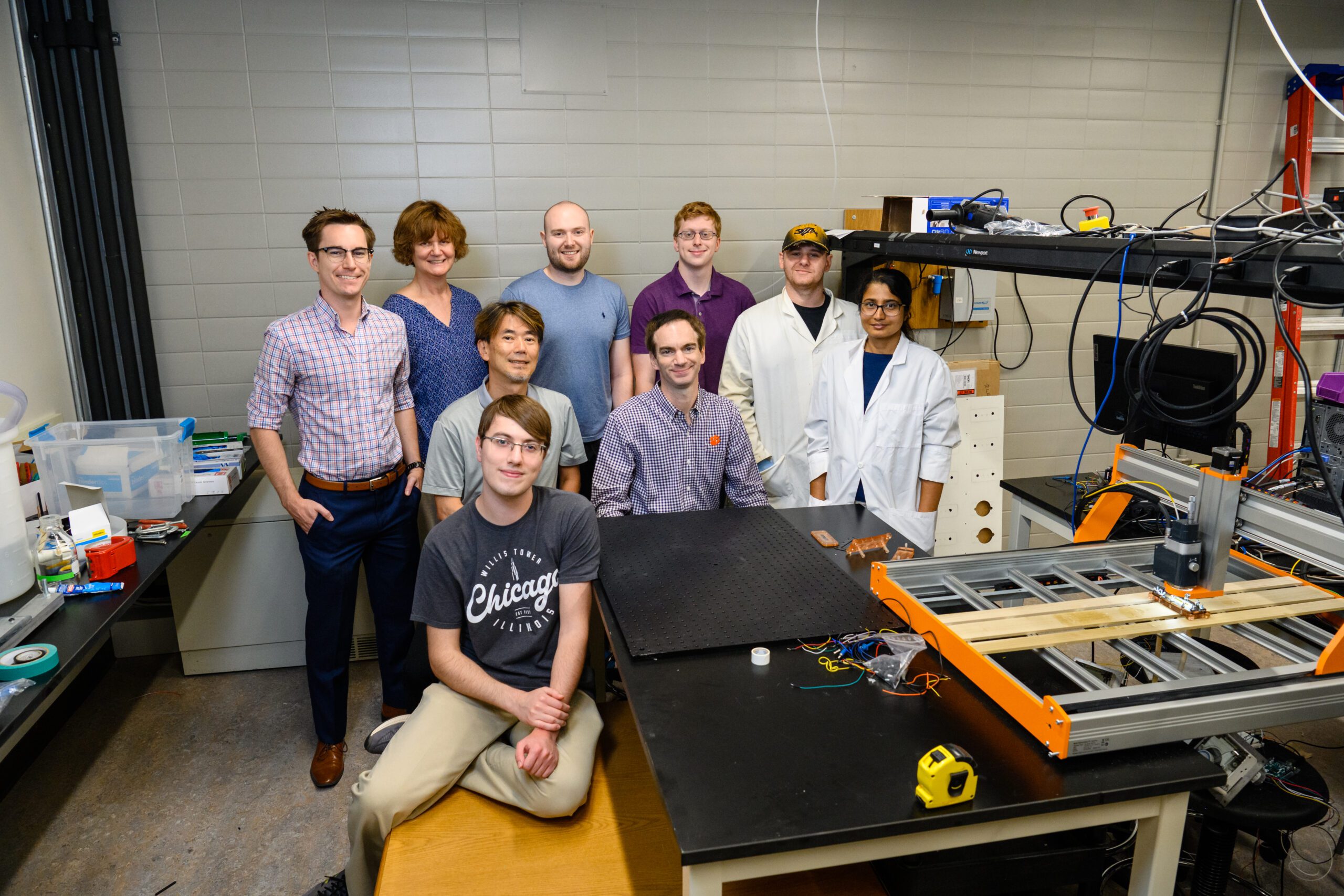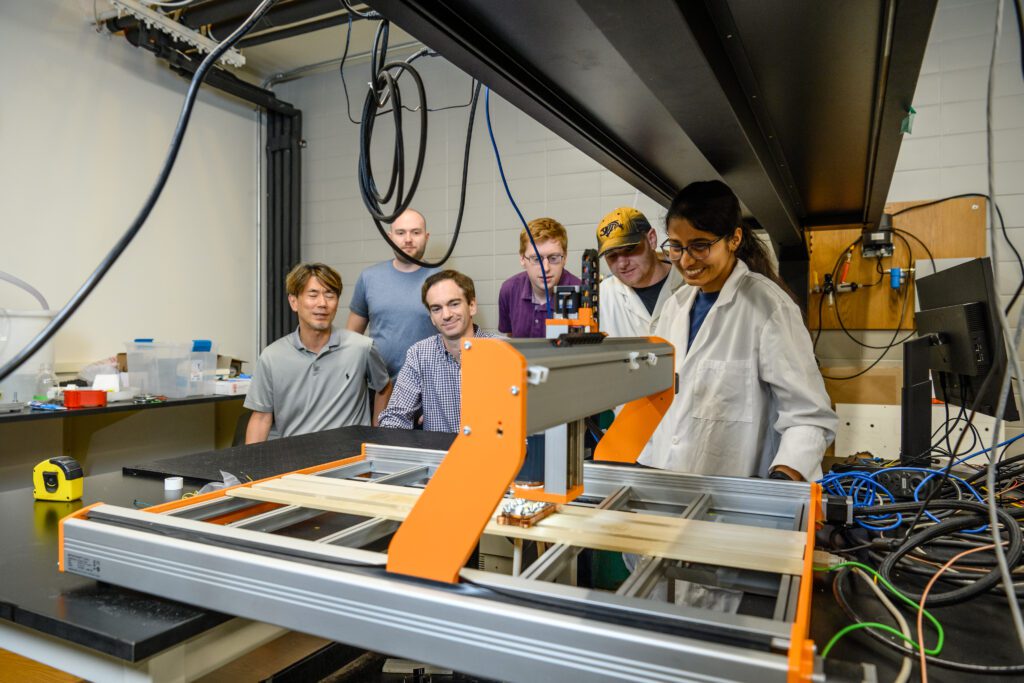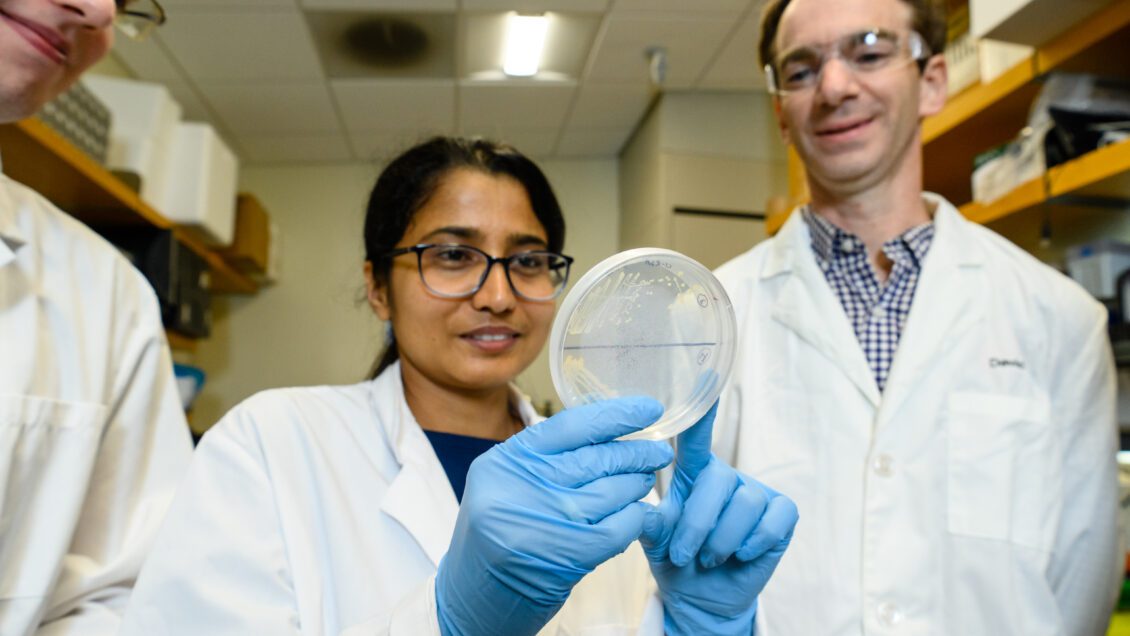Clemson University is leading an international team that is trying an innovative tack to solve an age-old maritime challenge, and researchers said the solution involves working with nature instead of fighting it.
The Defense Advanced Research Projects Agency (DARPA) is providing up to $13.6 million over four years for the project. Partnering institutions are Duke University, the University of Essex, the University of Copenhagen and Pompeu Fabra University.

The principal investigator on the cooperative agreement is David Karig, an associate professor of bioengineering at Clemson. Under his leadership, the team aims to address a pressing maritime issue.
When a hull enters the water, it begins to accumulate unwanted microbes that lead to increased drag. The buildup, called biofouling, reduces vessels’ speed and efficiency and can result in higher fuel consumption and maintenance costs.
The current solution is to use antifouling coatings that are environmentally harmful, costly or ineffective. The Clemson-led team is working on a more sustainable alternative that would employ natural marine microbes as “building blocks” to form smooth, stable biofilms that reduce drag.
A smooth biofilm that uniformly covers the surface of the treated area should perform as well or better than contemporary biofoul coatings, researchers said.
“Clemson University is committed to leading research, driving innovation and making a positive impact across the globe,” said Clemson University President Jim Clements. “We are excited for this team of top researchers, led by Dr. Karig, to develop creative solutions for a long-standing challenge facing marine vessels. We are also grateful to the Defense Advanced Research Projects Agency for awarding up to $13.6 million to this project and look forward to seeing the impact this research has for defense and industry on a global stage.”
The project’s focus is unmanned underwater vehicles (UUVs). Biofouling is a particular problem for UUVs because they often run on battery power, and the drag can reduce the amount of time they can be operated.
But researchers said the findings could apply more broadly, including to: the Navy, industries tied to marine transport, and a wide range of areas where biofouling is a problem, including oil production, water treatment, fuel tanks, the food and beverage industry, and nuclear power plants.
“Biofouling is a long-standing problem that goes back thousands of years, and it’s hard to address,” Karig said. “With this project, we’re embracing a solution that harmonizes with nature, rather than fights against it. I’m thrilled about the opportunity to develop engineering methods towards this goal, and I’m optimistic about the positive impact it can bring.”

As part of the project, researchers are isolating and characterizing the various types of bacteria found in water samples. They want to keep and grow the bacteria that form smooth biofilm communities and get rid of the ones that lead to biofouling.
One of the key pillars of the project is a scalable testbed built in the Rhodes Engineering Research Center at Clemson. The testbed mimics a UUV’s operational environment, including such factors as temperature, shear forces and pressure.
The team is also pioneering new research techniques. They are using optical coherence tomography (OCT) to view biofilms in real time and then go a step further, integrating OCT with superspectral imaging (SSI). Researchers call their technique OCTaSSI and said they expect it will be transformative in making predictions about biofilms.
The research is particularly ambitious in its aim to not only develop beneficial communities of natural microbes, but also to co-optimize for resilience and longevity in the application environment, researchers said.
The idea for the research grew out of an award that Nick Aldred of the University of Essex and his team won in 2020 as part of the U.S. Office of Naval Research’s Global-X Challenge. In that project, the Aldred team demonstrated a sample biofilm that resists biofouling with the goal of eventually replacing traditional hull coatings.
“Our recognition in the Global-X Challenge was just the beginning,” Aldred said. “Collaborating with institutions such as Clemson amplifies our collective strengths. The synergy brought by this international consortium has the potential to set a global benchmark in sustainable marine solutions.”
Co-principal investigators from Clemson include: Zhi Gao, Jiro Nagatomi and Bob Latour, all of the Department of Bioengineering; Barbara Campbell of the Department of Biological Sciences; and Adam Hoover and Jon Calhoun, both of the Holcombe Department of Electrical and Computer Engineering.
Lingchong You, James L. Meriam Distinguished Professor of Biomedical Engineering at Duke, said combining biomedical expertise with the challenges of marine biofouling brings a unique perspective.
“By diving deep into microbial dynamics, we are working to craft solutions that are both innovative and sustainable,” You said. “It is a privilege to be part of this international team, and I’m excited to see where our collective insights lead us.”
Get in touch and we will connect you with the author or another expert.
Or email us at news@clemson.edu

